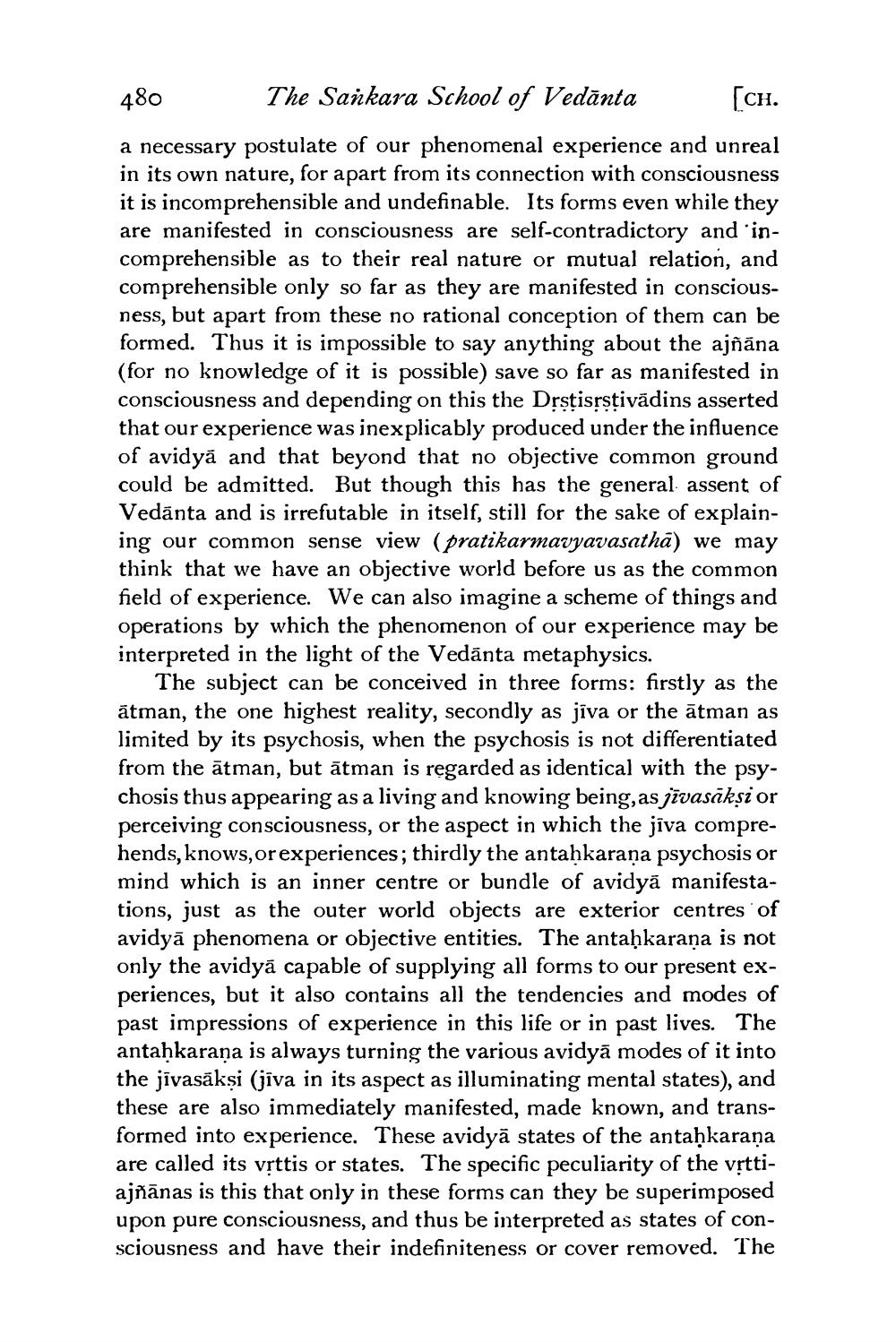________________
480
The Sankara School of Vedanta
[CH.
a necessary postulate of our phenomenal experience and unreal in its own nature, for apart from its connection with consciousness it is incomprehensible and undefinable. Its forms even while they are manifested in consciousness are self-contradictory and incomprehensible as to their real nature or mutual relation, and comprehensible only so far as they are manifested in consciousness, but apart from these no rational conception of them can be formed. Thus it is impossible to say anything about the ajñāna (for no knowledge of it is possible) save so far as manifested in consciousness and depending on this the Drstisṛstivādins asserted that our experience was inexplicably produced under the influence of avidya and that beyond that no objective common ground could be admitted. But though this has the general assent of Vedanta and is irrefutable in itself, still for the sake of explaining our common sense view (pratikarmavyavasatha) we may think that we have an objective world before us as the common field of experience. We can also imagine a scheme of things and operations by which the phenomenon of our experience may be interpreted in the light of the Vedanta metaphysics.
The subject can be conceived in three forms: firstly as the atman, the one highest reality, secondly as jiva or the ātman as limited by its psychosis, when the psychosis is not differentiated from the ātman, but ātman is regarded as identical with the psychosis thus appearing as a living and knowing being, as jīvasākṣi or perceiving consciousness, or the aspect in which the jiva comprehends, knows, or experiences; thirdly the antaḥkarana psychosis or mind which is an inner centre or bundle of avidyā manifestations, just as the outer world objects are exterior centres of avidya phenomena or objective entities. The antaḥkarana is not only the avidya capable of supplying all forms to our present experiences, but it also contains all the tendencies and modes of past impressions of experience in this life or in past lives. The antaḥkarana is always turning the various avidya modes of it into the jivasākṣi (jīva in its aspect as illuminating mental states), and these are also immediately manifested, made known, and transformed into experience. These avidyā states of the antaḥkarana are called its vṛttis or states. The specific peculiarity of the vṛttiajñānas is this that only in these forms can they be superimposed upon pure consciousness, and thus be interpreted as states of consciousness and have their indefiniteness or cover removed. The




